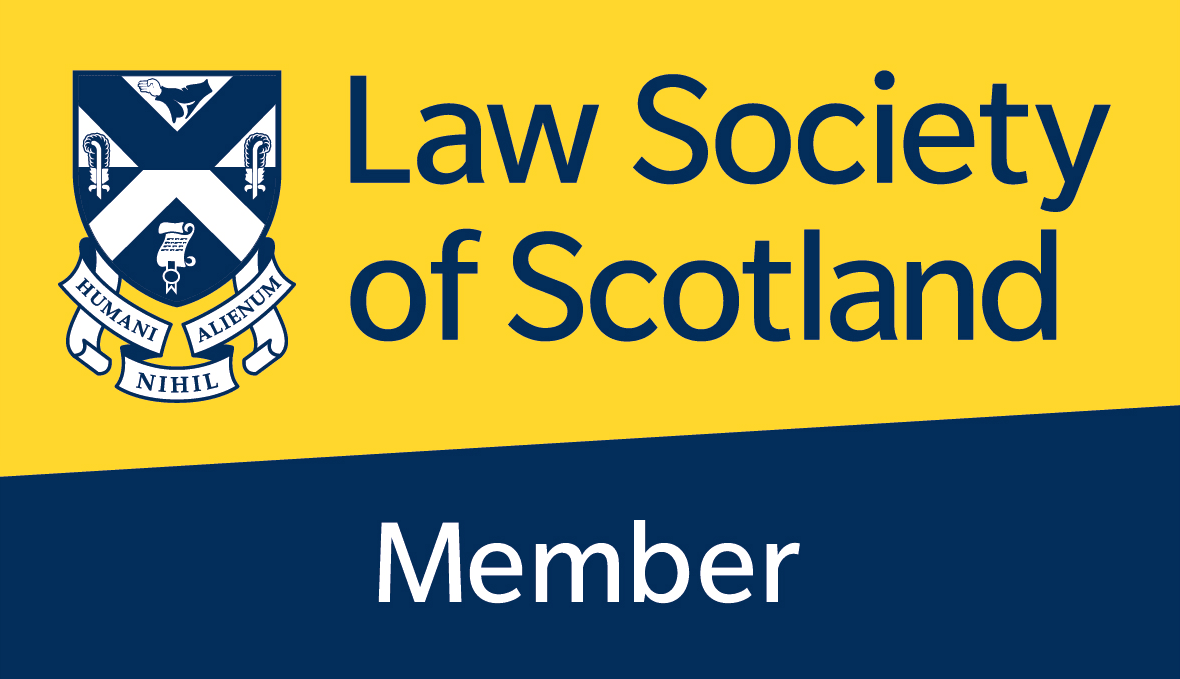Frequently Asked Questions (FAQs)
 It can be a really worrying time straight after an accident or injury, when you’re starting a legal process. To help, here are some answers to the questions most people ask us. Remember, any time you want, you can just pick up the phone and speak to an adviser.
It can be a really worrying time straight after an accident or injury, when you’re starting a legal process. To help, here are some answers to the questions most people ask us. Remember, any time you want, you can just pick up the phone and speak to an adviser.
What can I claim for?
Depending on what happened, you can claim compensation for: pain and suffering; wage loss after the accident; a lump sum for future wage loss; services provided by the family; the loss of a close family member.
Can I make a claim?
For you to be able to make a claim for compensation, it is essential that your injury or illness occured as a result of someone else’s carelessness. This is legal known as negligence.
If an accident happens as a result of your own carelessness you will have no claim. In addition, if it isn’t possible to show that an accident was someone else’s fault, even if it wasn’t your own it is very unlikely you will be able to recover anything.
If an accident was partly your own fault and partly somebody elses you will receive compensations, but it will be reduced by a proportion equal to the degree of your own carelessness, or contributory negligence. If, for example, only 60% of the blame for an accident, is attributed to the other party then your compensation will be reduced to 40%.
What is carelessness (negligence)?
Over the years, the law in Scotland has built up standards of care in all fields of human conduct. If someone’s behaviour does not live up to these standards of care, and causes you harm, they are legally negligent and you are entitled to make a claim against them.
For example, if you work in factory, your employer has a duty to provide you with safe premises, a safe system of work, safe equipments and proper training. If you suffer an accident because your employer hasn’t complied with these requirements, then you can claim compensation from him. If you are a member of a trade union, contact your official for initial help.
If you are involved ina road traffic accident, you would look to the standard of driving of the drivers involved in the accident. Every driver has a duty to drive carefully, keep a look out for other road users and comply with the highway code. If they don’t, and you are injured as result, then you can claim compensation.
Every local authority has a duty to keep roads and pavements in reasonable condition. If they don’t, and you have an accident as a result, you may be able to make a claims against them.
What is carelessness (negligence)?
You can claim compensation for pain and suffering. In Scotland this is known as Solatium (from the Latin word meaning solace, or relief).
In order to calculate the amount you should receive, we first have to obtain a Medical Report – from your own doctor, or from an independent specialist – detailing the extent of your condition. The report will tell us what injuries you suffered and whether you will have any problems with them in the future. The amount of solatium you receive will vary according to the extent of your injuries.
We now often find it necessary to obtain an additional report – provided by a psychologist – indicating the mental effects of the injury.
We are able to assess the likely leves of compensation at any time by checking the Judicial Studies Board “Guidelines for the Assessment of General Damages in Personal Injury Cases” (see our compensation calculator here) or legal journals like the Scots Law Times. We will also look at recent court decisions on the type of injury you have suffered on sites such as CaseCheck.
A few examples are listed below:
- Recently Mrs Pollocck (aged 25 at the time of her accident) suffered a whiplash injury to her back. Another car crossed in front of her own vehicle without warning at a roundabout. She recovered from the affects of her injury to her back after nine months but still suffered from anxiety and worry eighteen months after the accident. The sheriff awarded £2750 for compensation.
- In February 2010 Mr Hunter had whiplash injuries in a road traffic accident when his van was struck in the rear by another driver failing to pay attention. He suffered daily pain for six weeks and needed to take pain killers. The pain gradually got better over four months but he couldn’t play football or golf. He had a low golf handicap of 6 and used to play football twice a week and tennis. Because of the severe effect on his sporting activities which he was very good at, the sheriff awarded £3000 for compensation.
- In November 2005 Mr Burke was awarded £9400 in compensation for a hand condition (Vibration White Finger) which was caused by use of vibrating tools on metal work at his local council, where he was a Blacksmith. He suffered pins and needles in his fingers and tingling in his hands and numbness. His fingers went white. He did not have a good grip when gardening and would have to change jobs
These examples give some idea of what the courts may award, but every case is different. We can only assess the value of the claim once we have seen your medical report. One way you can help us is to let us know if you have had any previous medical problems which may have been made worse by the accident. Many people injure their backs in accidents; if you have had any previous trouble with your back, you must let us know, because it may make a difference to the amount of compensation you may receive.
Who pays for any compensation?
The insurer of the person or company who caused the accident.
Do I have to show it was someone's fault?
Yes. Unless special regulations apply, for example, if you are using machinery or a product which is faulty.
How long will it take for me to obtain any compensation?
It depends on the severity of the accident and the co-operation of the insurance company. But many straightforward cases settle quickly.
Why do I need a lawyer?
It’s not a simple process as the Law is very complex. Our lawyers are experienced and skilled in successfully pursuing personal injury claims. And if your case needs to get taken to Court because you are not being offered appropriate compensation, a lawyer has to act for you. We will make sure get the largest possible compensation and make sure the insurance company does not undervalue your claim.
Will I have my day in Court?
Probably not! 99% of cases settle before an actual Court Trial.
Do I keep all the compensation I recover?
This depends on the financial arrangement you have reached for funding the case.
Which offer should I take from the insurers? Only the third one?
Only taking the third offer from the insurers is an “old wife’s tale”. When your lawyer is negotiating with the insurance company he or she will tell you when an offer might be reasonable.
Are there any time limits for putting in a claim?
Yes, up to three years from the date of the accident (or two years for criminal injuries compensation). It’s vital that any Court action must be started within this time or you’ll lose your right to claim.
The deadline can be extended for a few types of industrial disease claims, so it’s always worth contacting us even if you think three years have passed. For a disease case, a three-year time limit normally runs from the date you become aware that your condition is work related.
What does "going to Court" mean? (Or starting a Court Action).
This means sending a Summons to the party responsible after the case is registered in Court. As soon as they receive the Summons (or Writ) the Court Action is started and the time limit is protected. it may last a year or two and could end in a Trial.
Why do I need to see a doctor?
The insurance company will require a specialist’ medical report before agreeing any settlement – and this will be based on the doctor’s opinion. If you’re unhappy with the report, the Doctor can always be asked for his or her comments.
Can I claim for loss of pay?
If you are absent from work as a result of an accident there, you can recover you wage loss. This calculated by looking at the take-home pay – gross (pay at the top) with tax and national insurance deducted – you would have expected to receive had you not been absent.
Any compensation you receive is tax free. You can also expect to recover and bonus and overtime pay you might have been entitled to. In order to calculate the amound of compensation due, we look at an average weekly figure based on your pay for the three months before the accident; we then apply that to the period you were off work and deduct it from any sick pay you receive.
Please keep your pay slips as these can be helpful in checking the wages details we receive from your employer.
All personal injury claims against insurers in the UK are registered with the Government Compensation Recovery Unit (CRU). This is because insurers need to pay back to the Government any DSS benefits relating to accidents under the Compensation Recovery Scheme (CRS). Some of these benefits may be deducted from any compensation awarded, but we will advise you if this is the case. You should be aware, however, that benefits are never deducted from your solatium (pain and suffering) award, only from wage loss and services awards.
It may be a term of your contract of employment that if you have an accident as a result of somebody’s (not your employer’s) negligence), any sick pay you receive must be claimed back by you on behalf of your employer. You will need to ask them for such details.
Can I claim for future loss of pay?
If your accident means that you cannot go on working in your old job, or if you have to get a less well-paid job, then we may be able to claim compensation for the loss of pay you would have earned in the future.
The Court, in considering compensation for loss of future pay, may also take into account what is known as loss of congenial employment. If you are no longer able to work a particular craft or skill which you enjoyed, an element of compensation may be given for that.
If I hear someone else received a figure in settlement of a similar claim, should I expect to get a similar amount?
No because you may not be aware of some important differences in the case. For example, they may have lost a lot of pay, whereas you may have been paid, so compensation including wage loss will be a lot higher. You also don’t know what their medical report says and some people exaggerate the amount they received.
Does the DSS take back all my benefits?
The insurance company have to repay benefits out of any settlement and we’ll let you know what’s involved if this affects you. All claims are registered with the government body known as the CRU (Compensation Recovery Unit). They also reclaim from insurance companies costs of hospital treatment after road traffic accidents – but this doesn’t affect you.
What else can I claim for?
- We can recover the cost of any specific items – clothing, or equipment, for example – damaged in an accident. Keep receipts if you have them.
- In serious accidents, and if appropriate, we can recover the costs of any items you may need for future care, or for nursing.
- We can also claim compensation for a relative who has to look after you following an accident. If your spouse has to do additional household or nursing duties, the the Court will assess a figure of compensation for that.
- In addition if you are unable to do any specific jobs about the house, or for the family, that you used to then again compensation can be claimed. This is known as a services claim
- Any bills received for work you could otherwise have done had it not been for an accident should be kept and a claim submitted for them.
- If you lose out on pension entitlement we can ask an actuary to assess the amount lost and include this in the claim.
- If you require any special equipment (including adaptation of a vehicle) or nursing assistance as a result of an accident, this too can be claimed; an expert will assess your nursing or other requirements.
How do I know if you're the right sort of lawyer for me?
We have a lot of experience in this area, and several of our partners are recognised Legal Experts. We’re listed as a Top 4 firm for personal injury claims in the independent guide, Chambers. We’re also members of the Motor Accident Solicitors Society (MASS).
Are there special regulations in Scotland?
Some activities have special regulations setting fown standards of care which must be complied with. If you work in a factory you ought to see, in some prominent place, a poster about your employer’s Health and Safety duties.
This will specify what the factory owner should do to keep the workplace safe, and list many detailed provisions. If these requirements are not complied with, you may have a claim in the event of an accident.
On 1st January 1993 six new sets of Health and Safety Regulations, having their origins in European Law, were passed which affect the work place and work equipment. These cover the use of equipment, the supply of personal protective equipment, manual handling and display equipment. If you work on a building site there are similar regulations which lay down very specific rules about the use of ladders, scaffolds and general building operations.
There are further regulatioins for docks, ship-building, the electricity industry and many other industrial processes.
Ultimately, if you can establish negligence you have the right to claim compensation.
When I hear that my case has settled how long will it take for me to receive payment?
Sometimes insurance companies pay in two to four weeks. However, there can be complications particularly in complex cases where payment may not be made for around eight to twelve weeks or longer.
Can I claim again in the future if there are complications with my medical condition?
Generally speaking, no. It will be a full and final settlement, unless a special arrangement is reached because your health may deteriorate in the future.
Ask one of our Scottish solicitors for free initial advice
For free initial advice from one our solicitors click here or call us on +44 131 225 5214.
We're here to help
Talk to one of our expert compensations lawyers today
Call us on +44 131 225 5214
![mass[1] mass[1]](https://www.lawfordclaims.com/wp-content/uploads/elementor/thumbs/mass1-qxo43kbvxet7ottt5swg3jwwyhvrex4o7ahww01r7k.png)
Accreditations & Memberships


Get 100% of the compensation you deserve
Talk to one of our expert compensations lawyers today
Call us on +44 131 225 5214
Or you can start your claim using our online claim form

